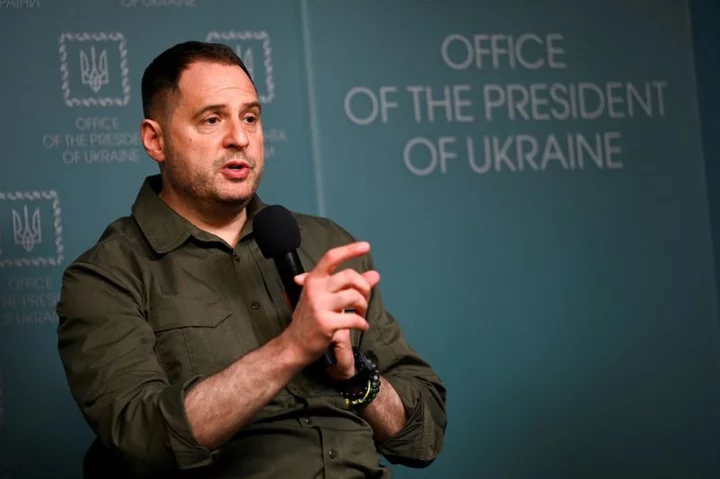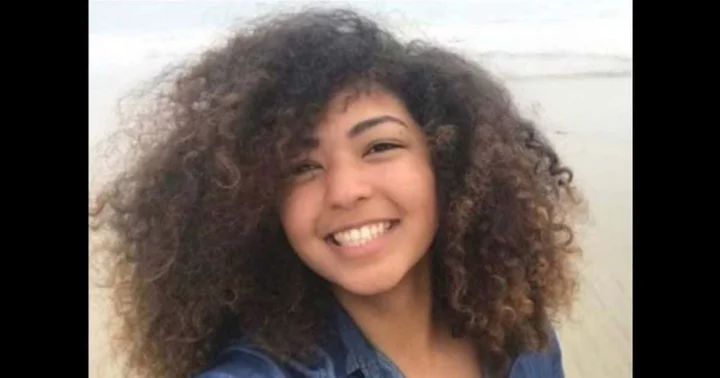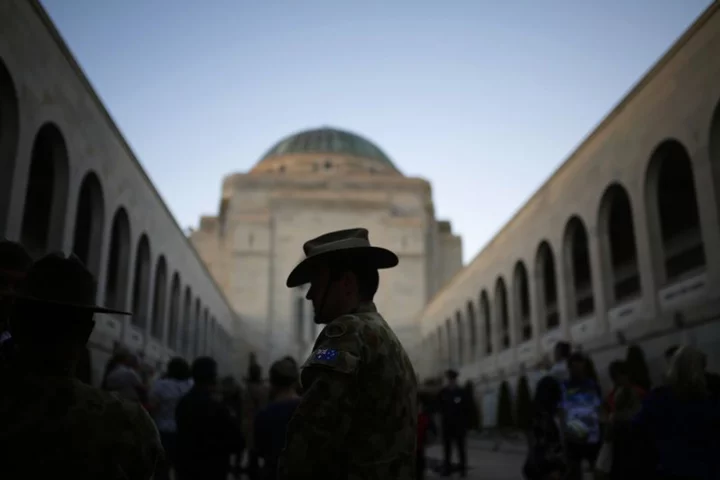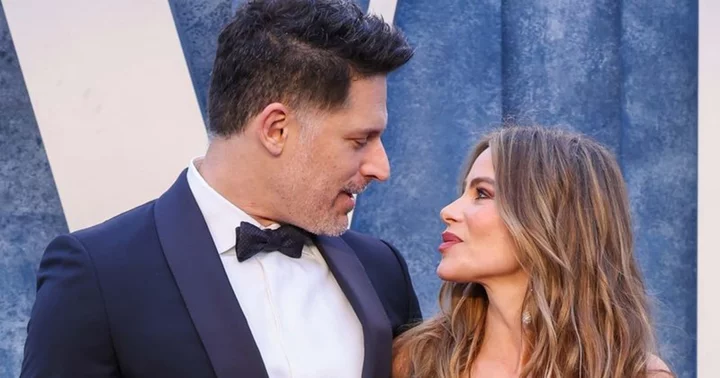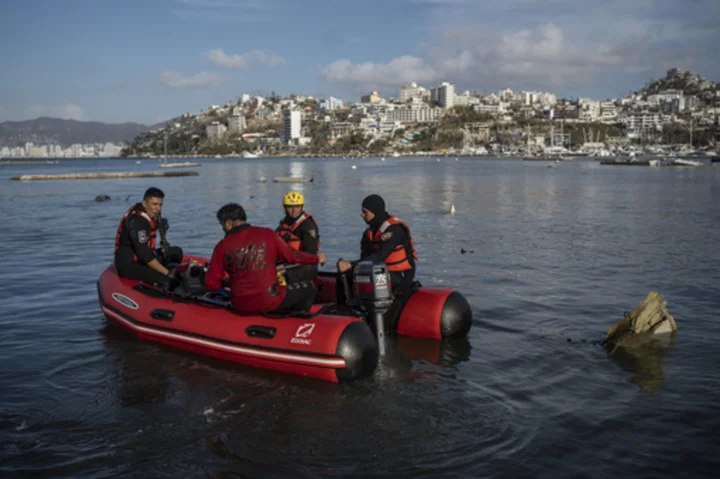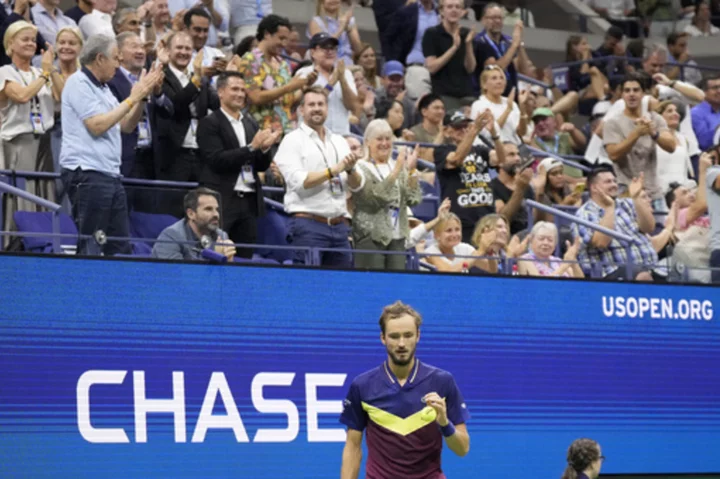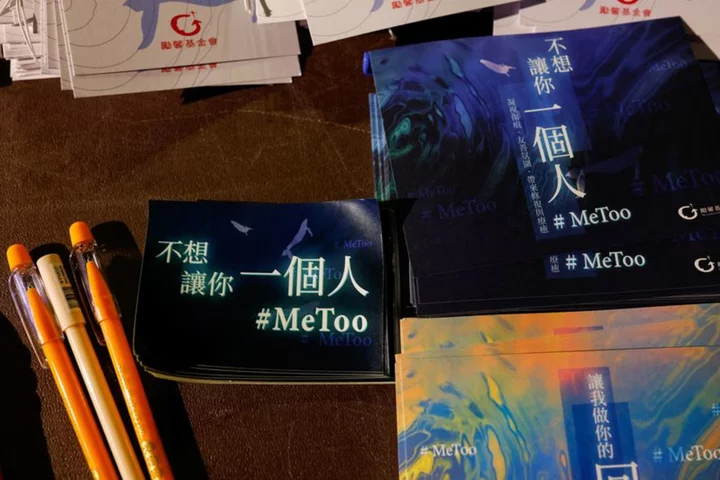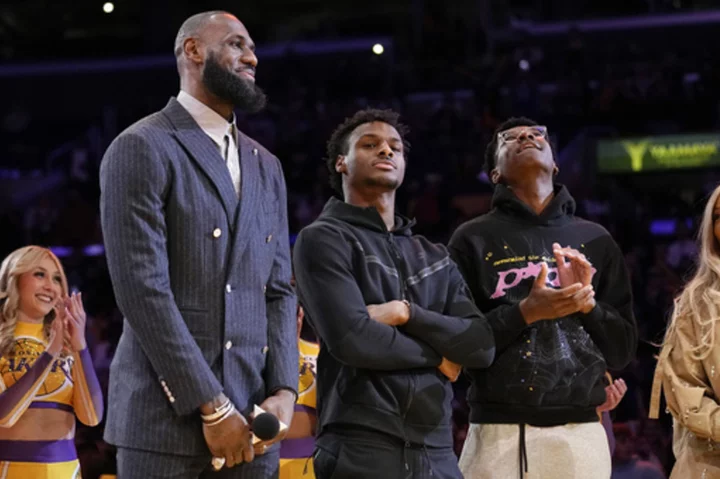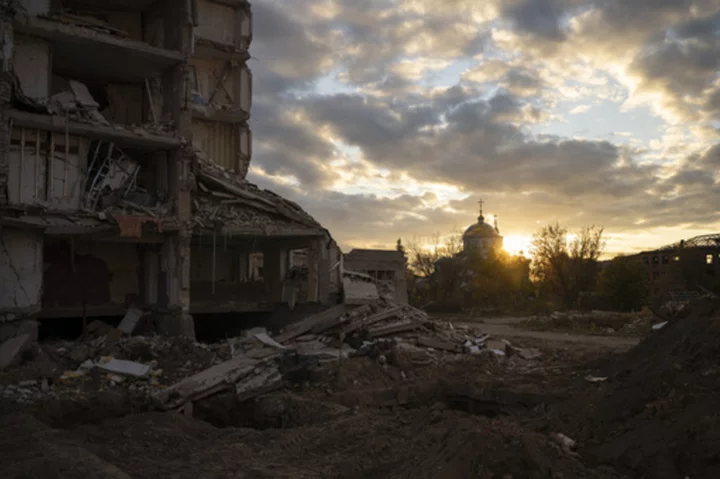By Maha El Dahan
DUBAI (Reuters) -Senior officials from some 40 countries including the United States, China and India began talks in Saudi Arabia on Saturday that Kyiv and its allies hope will lead to agreement on key principles for a peaceful end to Russia's war in Ukraine.
The two-day meeting is part of a diplomatic push by Ukraine to build support beyond its core Western backers by reaching out to Global South countries that have been reluctant to take sides in a conflict that has hit the global economy.
It is not clear whether the talks are aimed at producing a joint statement however, and the Ukrainian envoy to the meeting said the conversation "will be difficult".
"But behind us is truth, behind us - goodness," said envoy Andriy Yermak, head of President Volodymyr Zelenskiy's office, in a television interview published late on Friday.
Saudi state television reported on Saturday afternoon that the talks had begun.
Russia is not attending, though the Kremlin has said it will keep an eye on the talks. Ukrainian, Russian and international officials say there is no prospect of direct peace talks between Ukraine and Russia at present, with the war raging.
Zelenskiy has said he hopes the talks will lead to a peace summit of global leaders to endorse principles in his plan for a settlement, which demands Russia's return of all Ukrainian territory and withdrawal of all its troops.
The world's top oil exporter Saudi Arabia, which has maintained contacts with both sides since Russia invaded Ukraine last February, has played a role in convening countries that did not join earlier meetings, Western diplomats have said.
China, which did not attend a previous round of talks in Copenhagen, is sending Special Envoy for Eurasian Affairs Li Hui, Beijing said on Saturday. China has kept close economic and diplomatic ties with Russia since the conflict began and has rejected calls to condemn Moscow.
"We have many disagreements and we have heard different positions, but it is important that our principles are shared," he said.
Indian National Security Adviser Shri Ajit Doval has also arrived in Jeddah for the talks, the Indian embassy in Riyadh said on social media on Saturday. Like China, India has kept close ties with Russia and refused to condemn it for the war. It has ramped up imports of Russian oil.
SAUDI DIPLOMACY
Western officials and analysts said Saudi diplomacy had been important in securing China's presence at the talks.
Under de facto ruler Crown Prince Mohammed bin Salman, known as MbS, the kingdom has sought a bigger role on the world stage and has pushed to expand ties with major powers outside the old framework of its relationship with the United States.
Riyadh has worked with Moscow in recent years on oil market policy and, along with Turkey, it helped mediate a prisoner swap between Ukraine and Russia last year. Zelenskiy attended an Arab League summit in Saudi Arabia last year where MbS voiced readiness to help mediate in the war.
Saudi Arabia has also built a closer relationship with China over the past year, giving an effusive welcome to Chinese President Xi Jinping when he visited Riyadh in December, and seeking to join the China-led Shanghai Cooperation Organization.
In March, Beijing brokered a resumption of ties between Saudi Arabia and its arch regional foe Iran.
Kristian Coates Ulrichsen, Middle East fellow at Rice University's Baker Institute, said China's attendance sent a signal of support for Saudi Arabian diplomacy that built on other areas of recent Chinese-Saudi cooperation.
"Chinese participation in the talks is a boost to the Saudi narrative that their convening power and ability to leverage relationships is qualitatively different to Western parties," he said.
However, China's presence does not indicate it will ultimately agree to the results sought by Ukraine and its allies, said Yun Sun, director of the China programme at the Stimson Center in Washington.
"Participating in a meeting only suggests the willingness to listen and discuss. It by no means suggests that China has to agree to anything in the end," Sun said.
(Reporting by Lidia Kelly in Warsaw, Maha El Dahan and Omar Abdel-Razek in Dubai, Michael Martina in Washington and Aftab Ahmed in New Delhi; Writing by Angus McDowall; Editing by Andrew Cawthorne)

